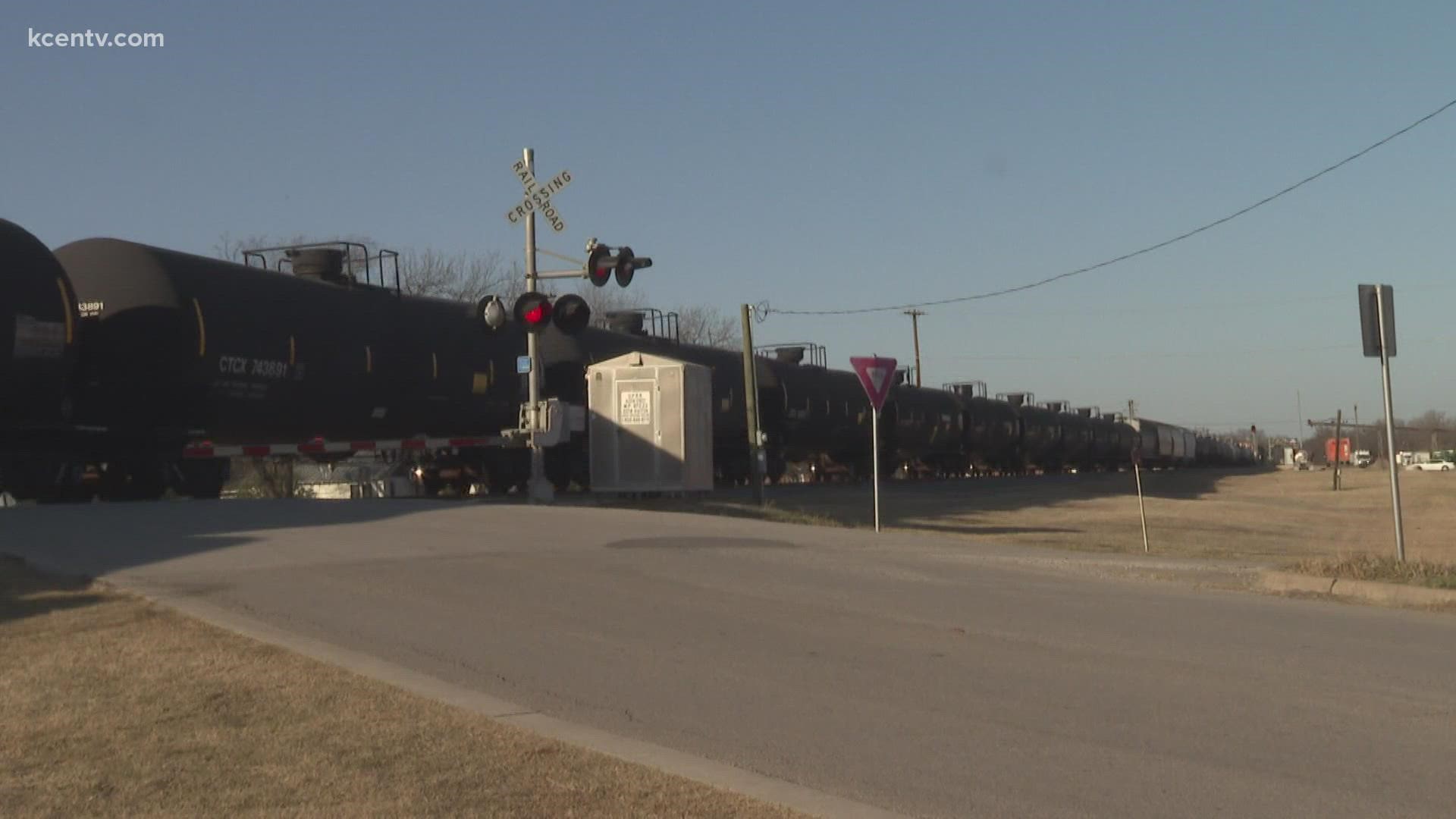WACO, Texas — A new attendance policy from the Burlington Northern Santa Fe Railway Corporation has employees upset and calling for a strike.
The decision is not just impacting the employees, but also their families and home life.
“Railroaders are not home, they are not home, that is a fact," Kelly Pettus, a railroader's wife from San Antonio said.
The policy, called Hi-Viz, creates a point system for days taken off. Each employee would be given 30 points for the rest of their career but would be docked points for taking off weekdays (two points), weekends (four points), and holidays (ten points). If your number drops below zero, an offense is triggered which can result in a suspension or termination.
Pettus wrote a story on Facebook this week, detailing how she and her husband missed a family vacation due to an old attendance policy from the railroad.
"This policy is inhumane and does not allow railroad crews any quality of life," she wrote.
Pettus says they've moved all over as the family is trying to better their lives through the BNSF seniority system.
This program is the reason why the Pettus Family moved to San Antonio in 2018. Pettus moved away from family for the better quality of life, but it has hardly come. She and her husband have missed doctor appointments and ignored health issues.
“These guys are struggling with fatigue, obesity, sleep apnea, alcoholism and family separation," she said. "The emotional drain of that and then they’re hauling methane fuel."
Gordon Darting, an engineer and local union leader, told 6 News on Tuesday that a strike is possible if this policy goes into effect and the union leader signs off on it.
If that were to happen, the effects on the supply chain economy could be devastating. Margaret Kidd, University of Houston's program director of supply chain and logistics, says an already struggling supply chain would take a huge hit from just a single day without BNSF railroad operations.
"Realistically, the implications to the economy are enormous," Kidd told 6 News. "I would have to think the Biden administration will step in. My hats off to these transportation workers who have been on call for the last two years during the pandemic, my read on this new absentee policy at BNSF is really somewhat concerning to expect employees to be on call essentially everyday of the month, with possibly one or two days they can take, it's just not realistic."
Kidd added that in 1991, a railroad strike of 200,000 employees lasted just 14 hours as government intervention ended it. It was estimated that everyday the strike lasted, more than $600 million would be lost.
“BNSF covers 28 states, so that’s a major footprint of impacted consumers and industrial partners.”
Kidd believes addressing employee treatment and equity is the first step in fixing this.
“You’re seeing corporations making record profits and its time to balance that equation, these frontline workers should be getting premium pay," she said.
Pettus and Darting both confirmed that many young railroaders have been furloughed from BNSF. They believe giving these railroaders their jobs back would make it easier on working employees and alleviate scheduling conflicts. However, Darting believes that BNSF is hoping to cut down on benefits packages with the move.
Veteran railroaders like Pettus' husband have an age to work to until they can retire with full benefits, but for a younger generation, they are being steered away from the industry.
“I have a nephew who’s going to school," Pettus said. "He came to us and said, 'Uncle David, what about being a railroader?" And he said 'don't do it.'”
BNSF did respond to an interview request from 6 News on Jan. 18 and said, "Last week, BNSF announced a new system that is designed to provide employees with real-time information and greater flexibility, so they can make informed decisions about their work schedules. This policy update is consistent with practices across the transportation industry, while helping us safely and efficiently serve our customers and the communities that count on us. We understand that change can be an adjustment, but working together with our employees, we believe we can adapt to meet today’s competitive freight environment."

